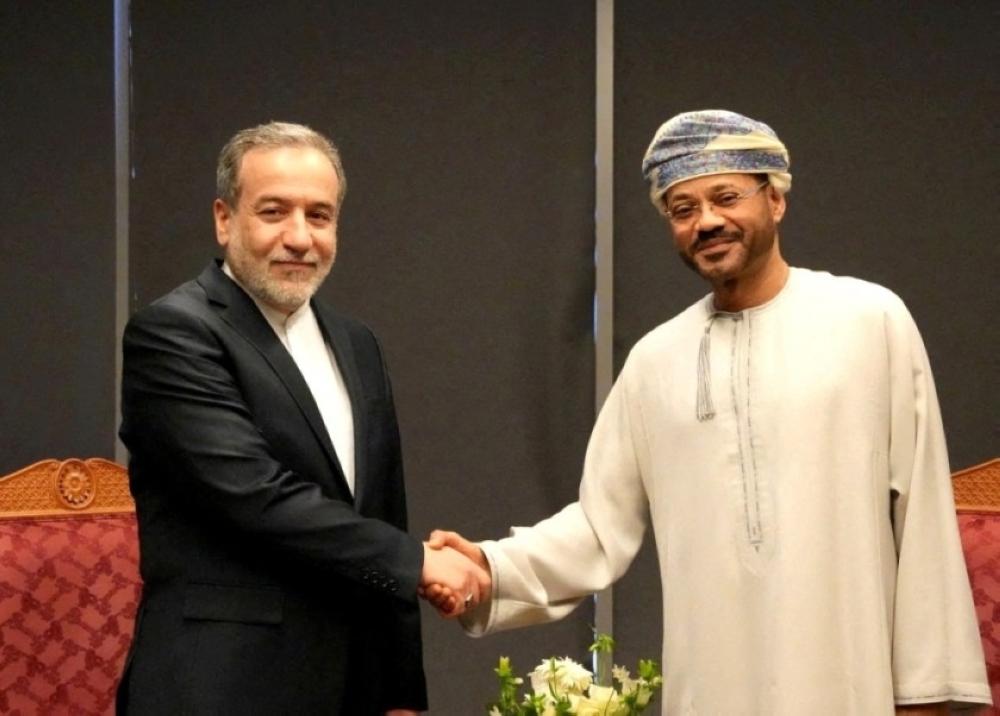

Very recently, the eyes of the world turned to Oman - not because of conflict, but because it remains one of the last places in the Middle East where opposing powers can meet and speak.
The Sultanate of Oman continues to prove itself as a space for dialogue, a neutral ground capable of managing fragile historical moments when the region most needs a moral and geopolitical compass.
The latest meeting between Washington and Tehran, which opened last Sunday in Muscat, is neither unprecedented nor likely to be the final round. Yet this encounter comes at a particularly critical time - marked by rising tensions, complex symbolism and high-stakes agendas that extend beyond the nuclear file. The negotiations reflect not just a technical dispute, but a deeper geopolitical contest with global implications.
The key question now is not simply whether the talks will succeed or fail - though early signs appear cautiously optimistic, but what has driven both parties to return to the negotiating table at all. What has shifted? Who is running against time? And who is trying to reset the balance of power before things spiral into a full-blown conflict?
At its core, the Iranian nuclear issue has long served as a mask for a broader struggle - one rooted in Iran’s political independence and civilisational pride. Since the 1979 revolution, Iran has openly rejected Western hegemony, a stance that continues to unsettle Washington. The fear is not only about uranium enrichment or centrifuge counts, but about Iran's refusal to conform.
This non-compliance threatens the established global order built to exclude powers outside the Western sphere. Yet, this does not mean the region can afford to ignore any nuclear ambitions - whether Iranian, Israeli, or otherwise. A nuclear-free Middle East remains a shared aspiration.
With Donald Trump back in the White House, his desire to showcase his negotiation skills is apparent. But beyond personal ambition lies a clear strategic aim: to prevent Iran from acquiring even symbolic deterrent power, especially in relation to the Washington–Tel Aviv alliance. The issue at hand is broader than centrifuges - it involves the entire axis of influence stretching from Tehran to Beirut.
However, history teaches us that dialogue can emerge from unexpected places and moments.
As former president Franklin D Roosevelt once remarked, “In politics, nothing happens by accident.” The complex US–Iran relationship - from the 1953 coup to the 2015 nuclear deal - has shown that progress is possible when hegemonic impulses are temporarily replaced by pragmatic statecraft.
This round of negotiations, unlike the secret ones Oman hosted a decade ago, is unfolding in full view of the public. It reflects two competing visions: Washington seeks to salvage its image without yielding control, while Tehran wants to preserve its dignity without forfeiting its regional role.
The US wants to broaden the deal to include Iran’s missile programme and its regional presence - non-negotiable issues for Tehran. Meanwhile, Iran has hinted at limiting uranium enrichment under international oversight but firmly rejects dismantling its nuclear infrastructure or withdrawing from key areas of influence.
This brings us to a vital question: can common ground truly be found?
The answer may lie in recognising that this is not merely a geopolitical contest, but a civilisational clash. On one side stands a global power that sees itself as the custodian of liberal values; on the other, a nation with a deep historical identity and a narrative of resistance to dominance. Iran is framed as a threat not because of its capabilities alone, but because it presents an alternative worldview that challenges Western supremacy.
Oman, fully aware of the stakes, continues to facilitate dialogue with great care. It understands the region’s delicate balances and is working to ensure that this historic moment is not lost. The outcome of these talks may not be immediate, but the fact that they are taking place at all — here, in Muscat — is itself a sign that reason still has a place in diplomacy. In a world leaning towards polarisation, Oman remains a reminder that dialogue is still possible, and perhaps even necessary.
Asim al Shidi
The writer is the Editor-in-Chief of Oman Arabic daily newspaper
Translated by Badr al Dhafari
The original version of the article appeared in Oman Arabic newspaper’s print version on April 13, 2025
Oman Observer is now on the WhatsApp channel. Click here



